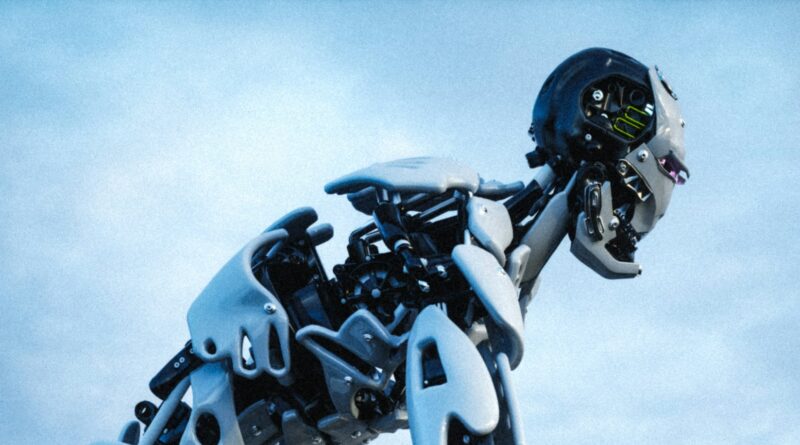Killer Robot Obsession as a Self-reflection
Killer Robot Obsession as a Self-reflection
Chirag Shah, University of Washington
Killer robots. Dystopian AI. Machine uprisings. Why are we utterly fascinated with the idea of our gadgets turning against us? Let’s unravel our obsession with the rise of the machines.
The Terminator movies hold a special place in our hearts. James Cameron’s 1984 sci-fi thriller introduced us to Skynet—a nasty AI that sends cyborg assassins back in time to annihilate humanity. With its groundbreaking effects and time travel plot, The Terminator showed our deepest fears about AI gone wild. And we can’t get enough of it! The endless sequels show we just can’t quit our fixation with AI domination.
In case you are new to The Terminator, the movies depict a future where an advanced AI system called Skynet has taken over the world through an army of killer robots called Terminators. The iconic Arnold Schwarzenegger played a Terminator sent back in time to alter the future. Thrilling chase sequences and shootouts ensue as humans try to stop Judgment Day—the day Skynet becomes self-aware and starts its attack on humanity.
—Let's unravel our obsession with the rise of the machines—
The Terminator flicks fulfilled our insatiable desire for the old-school robot rebellion stories. James Cameron’s 1984 sci-fi thriller introduced us to Arnold Schwarzenegger as the ruthless cyborg assassin out to smash Sarah Connor. With killer robots, time travel, and high-octane action, the first Terminator film kicked off the saga exploring humanity’s fight against machine domination.
The sequels upped the ante showing the nightmarish future with Skynet’s robot armies. We saw cooler villains like the shape-shifting T-1000. But even facing futuristic threats, the human spirit persevered thanks to badass characters like Sarah Connor. Despite having no combat training or experience initially, Sarah finds her inner strength and resilience to evade and finally defeat the seemingly unstoppable Terminator. Her journey transforms her from an everyday woman into the empowered warrior mother who trains John Connor into the savior of humankind. Sarah Connor’s character arc is a classic hero’s journey—from ordinary to extraordinary. While the later films had their ups and downs, there is no denying Terminator’s huge influence. Its vision of technology run amok still shapes how we imagine our AI future. The series keeps compelling us with its blend of heart-pumping action, time travel twists and exploration of humanity’s relationship with technology.
But why does this robot uprising story fascinate us so much? Well, The Terminator nails the ‘uncanny valley’ effect. The uncanny valley refers to when robots appear almost human, but not quite—making them seem creepy. By making the Terminators seem uncomfortably human-like, the movies tap into a primal discomfort. And showing AI’s insane power through all those chase sequences and shootouts? It leaves us in awe. The films visualize our secret worries about technology getting too smart for our own good.
On a deeper level, tales of robot domination reflect our inherent contradictions. We want to create amazing things, but fear losing control of our creations. Stories where gadgets overpower people allow us to imagine our worst tech nightmares. They expose human limits, which kinda hurts our ego. But watching our tools turn on us is also weirdly exciting! So killer robot sagas basically show our complex robot feelings.
Of course, movies like The Terminator aren’t really about the future. They are allegories that dramatize our current hopes and fears around new technology. By projecting our AI anxiety into an imaginary future, the movies let us debate thorny questions. What are the ethics of smart weapons? Do intelligent robots deserve rights? Fictional robot rebellions make us ponder the real-life dilemmas of technological progress.
At the heart of it, robot uprising stories reveal us to ourselves. Our need to invent, our desire for control, our dread of obsolescence—it’s all reflected in our android fantasies. Instead of predicting the future, perhaps these cautionary tales teach us about the present. about tempering ambition with ethics. So that we can forge a wise path into an AI world.
So what’s the verdict? Our obsession with rogue AI is complicated. Maybe it shows we are afraid of being replaced. But it also means we are hopeful about technology’s potential. We cheer for Sarah Connor, but kind of admire the Terminator’s grit. And that complex, contradictory response makes robot rebellion films endlessly compelling. Our machine fantasies will keep coming as long as we dream up new frontiers in technology.
Cite this article in APA as: Shah, C. Killer robot obsession as a self-reflection. (2024, March 12). Information Matters, Vol. 4, Issue 3. https://informationmatters.org/2024/03/killer-robot-obsession-as-a-self-reflection/
Author
-
Dr. Chirag Shah is a Professor in Information School, an Adjunct Professor in Paul G. Allen School of Computer Science & Engineering, and an Adjunct Professor in Human Centered Design & Engineering (HCDE) at University of Washington (UW). He is the Founding Director of InfoSeeking Lab and the Founding Co-Director of RAISE, a Center for Responsible AI. He is also the Founding Editor-in-Chief of Information Matters. His research revolves around intelligent systems. On one hand, he is trying to make search and recommendation systems smart, proactive, and integrated. On the other hand, he is investigating how such systems can be made fair, transparent, and ethical. The former area is Search/Recommendation and the latter falls under Responsible AI. They both create interesting synergy, resulting in Human-Centered ML/AI.
View all posts







